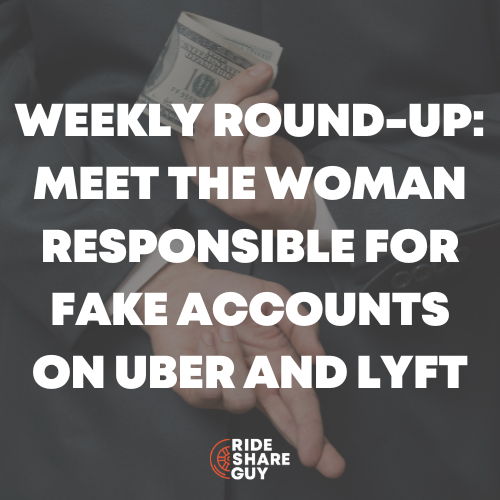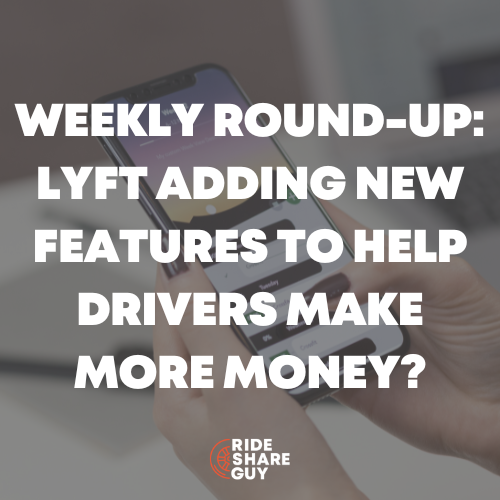Have you heard?! There was an alleged cybersecurity attack that hit Uber – as of now, Uber is looking into it. Also, Uber has agreed to pay New Jersey $100 million in back taxes for unemployment but with the emphasis that they don’t agree their drivers are employees. Keep reading for more in this week’s roundup with senior RSG contributor Paula Lemar.
Uber investigating ‘cybersecurity incident’ after report of breach (Reuters)
Summary: Uber Technologies Inc (UBER.N) said on Thursday it was investigating a cybersecurity incident, after a report that its network was breached, forcing the company to shut several internal communications and engineering systems.
A hacker compromised an employee’s account on workplace messaging app Slack and used it to send a message to Uber employees announcing that the company had suffered a data breach, according to a New York Times report on Thursday that cited an Uber spokesperson.
Cybersecurity has been an issue for Uber in the past. It suffered a significant hack in 2016 that exposed the personal information of about 57 million of its customers and drivers….
My Take: Share your thoughts about this cybersecurity attack on RSG’s Facebook page. If this information was really accessed, as a customer and/or driver, you’ll want to keep an eye on your credit cards for any suspicious activity. You might also want to change your Uber app password as an added precaution.
In the New York Times article, a security engineer stated, “They pretty much have full access to Uber.”
I’m assuming Uber will take the necessary steps to beef up its cybersecurity in the future to help prevent this kind of takeover. It actually surprises me a bit that they were seemingly easy to hack, according to what the hacker himself claimed about their security and how he breached the company.
Also, be aware of scams and never give out your passwords!
Uber pays New Jersey $100 million in back taxes over driver employment status (Reuters)
Summary: Uber Technologies Inc (UBER.N) said on Monday it back-paid New Jersey $100 million in unemployment taxes over classifying drivers as contractors, but added that it did not agree with the state’s view that drivers were “employees.”
Uber also said it only paid a fraction of what the state had originally demanded in its audit, which was over $1 billion. The ride-hailing company made a payment of $12.1 million, while its subsidiary Raiser paid about $88 million.
“Drivers in New Jersey and nationally are independent contractors who work when and where they want… We look forward to working with policymakers to deliver benefits while preserving the flexibility drivers want,” an Uber spokesperson told Reuters….
My Take: As several of RSG’s readers have mentioned on our Facebook page, this money will unfortunately not be going to the drivers. Instead, it will be going to the state. However, this article did spark a debate on whether drivers are independent contractors or employees.
I think Simon said it best when he said, “Uber wants Independent Contractors that act like employees… i.e. accept every ride, provide excellent customer service, etc.”
That’s exactly what it feels like more often than not. Uber wants to pay independent contractors to avoid the extra tax burden and cost of paying for benefits, but they want their drivers to act like employees who have to do as they are told instead of picking and choosing what they will accept to do.
Uber CEO says that it will phase out gas-powered cars by 2030 (CBS News)
Summary: In an effort to add more electric vehicles to its fleet, Uber has rolled out an option that allows users to select those vehicles. Starting Thursday, Uber’s Comfort Electric option is being offered in an additional 15 U.S. cities. That brings the program to a total of 25 cities and states in North America.
Uber’s CEO Dara Khosrowshahi told CBS News’ senior national and environmental correspondent Ben Tracy that there’s an even bigger goal at play.
By 2030, Uber wants all its vehicles in its fleet to be electric—if a driver does not have an EV by then, they will not be allowed on the platform.
“We have a target to be fully electric in the U.S., Canada and Europe,” he said….
My Take: This is still proving to be a monumental task for Uber and Lyft to aim for. While the availability and cost of electric vehicles is changing on a regular basis, it’s still a hard pill for many to swallow without incentives.
According to this article, on average, electric vehicles cost $60,000 new. That’s a large chunk of money for the average consumer. And that’s not including the cost that some customers would need to incur to add charging stations to their homes to be able to use these vehicles.
Of course, there are cheaper EV options out there! Check out our list of the cheapest EVs for rideshare drivers.
Read more about this topic with our article Uber Announces 2040 Zero Emissions Goal.
Also in the news…
Instacart Doubles Down on Its Technology Solutions for Independently-Owned and Locally-Operated Grocers With Acquisition of Rosie (PR Newswire)
Thoughts: I’m sure Instacart will continue to develop these kinds of improvements before their plans to go public are fulfilled by the end of the year. Keep an eye out for more of the same in the coming months.
Local rideshare drivers demand justice and reform after Lyft driver murdered in downtown Seattle (Fox 13 Seattle)
Thoughts: Drivers and passengers have been pleading for better safety and security measures for years. Both Uber and Lyft’s platforms do not allow weapons, but several drivers have admitted they carry some kind of weapon for protection. But that doesn’t help those who follow the rules when a passenger decides to turn violent and deadly.
Stay safe out there, everyone!
-Paula @ RSG




